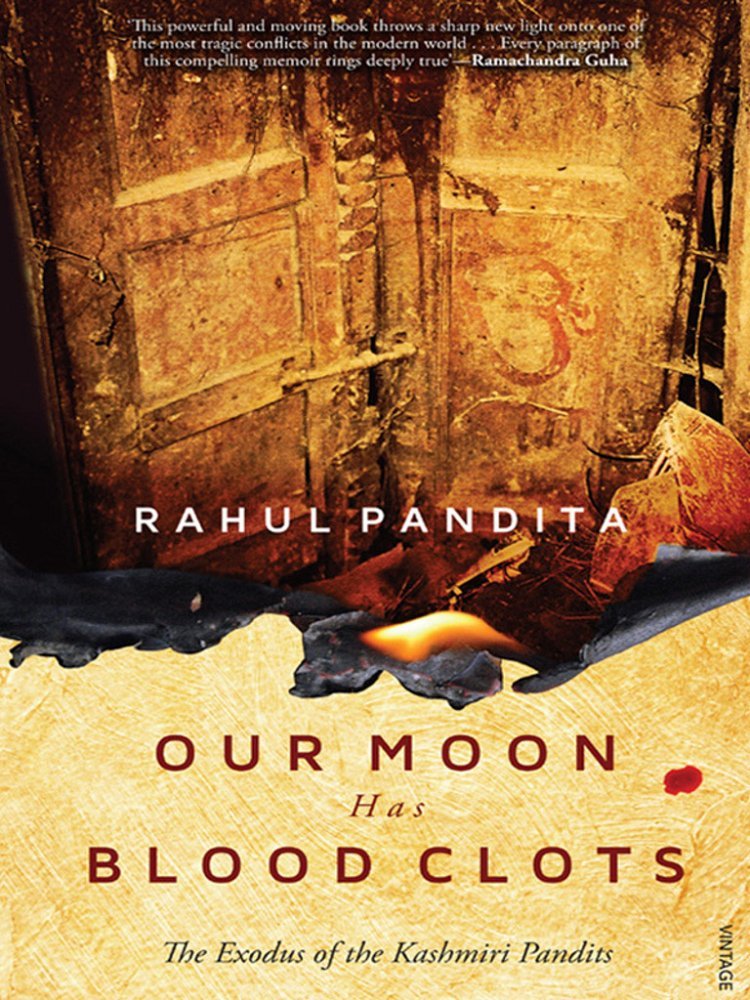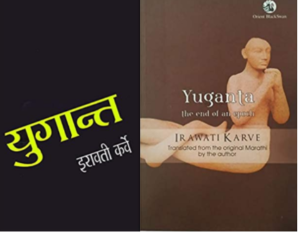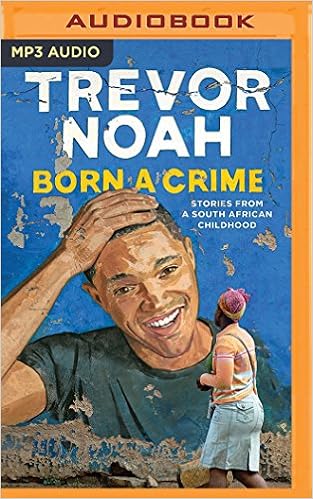
Our moon has blood clots is a gripping biographical tale by journalist Rahul Pandita – which recounts the horrors faced post-1986 Kashmir by the Kashmiri Pandit community at hands of Pakistan aided Islamists. The subtle changes in some Kashmiri attitudes towards the Pandits since the 1980s are brilliantly conveyed through small incidences from the author’s childhood. The book tells the other side of the Kashmir story which has rarely received attention in the global political and even local social circles. The terror emanating nightly from the local mosques jumps out of the pages very effectively. All the killings are from 1989 onwards are told separately and serially which is very impactful in recreating the reign of terror- the pandits must have felt in their ancestral homeland. The Islamist nature of killings is also highlighted (how some pandits were killed with nails hammered to their foreheads). The book also highlights how the silent observers of the valley, who may have not approved the brutalization of Pandits, rarely put up a fight supporting their neighbors. The continuing tragedy of the Pandits at the hands of Jammu residents and negligent central and state government is also narrated from personal and observed experience. The ethnic cleansing of Kashmir in 1947 at hands of Pakistan supported tribesman is also connected to the book narrative through another POV.
The passage where the author narrated his personal journey back to his house leaves the reader in a sad and dazed state. The author’s Hindu culture and heritage are always present in the backstory and hence the pain at the potential loss of Kashmiri pandit culture in the refugees creates a particularly poignant moment in the book. The author’s sufferings, however, aren’t translated into bigotry against Muslims (Kashmiri or non-Kashmiri). The reference to Gujarat 2002 riots (author’s father’s recollections at the lynching of Ehsan Jafri) in the juxtaposition of Pandit anger at suffering is handled with consideration of human rights as the author explained once on television debate. (I have lost my home, not my humanity).
There are few things in the book which could have been handled slightly differently for a better effect IMO. The narrative structure of the book is not perfectly linear – which could’ve been handled differently – but that’s a personal preference and many might view it differently than me. The 1947 story could also be helped a bit by putting it into the larger Partition story of 1947, even though this occurred 2 months after the worst slaughter of 1947. However, these criticisms don’t blunt the impact this book will make on any reader. The book not only makes you feel the pain of the Pandits but also makes you want to work towards preserving the Kashmiri Pandit culture and heritage (especially in the valley). There really is no solution to the Kashmir valley question problem till the Pandits return to their ancestral homeland from where they were brutally driven out.
Post Script:
The only personal connection I have had to the Pandits is because of the Kashmiri Pandit Quota present in Maharashtra Education enacted by the Shivsena BJP government of 1995 on Balasaheb Thackeray’s insistence. Slapstik or anyone else with Kashmiri connections – Could you please add your comments on Pandita’s telling of the story – both in Book and other media. For me, he serves as a Northstar to navigate polarized debates on twitter and social media in general – for example, his coverage of Delhi Riots & 2019 election.

 Yugant confronts various versions of Mahabharat analytically and tries to make sense of character arcs and motivations. Intelligently analyzed without religious respect but with literary respect. The motivations of Pandavas for marrying Draupadi as the Royal Queen are very well explained. The literary accounts of chats between Dhritarashtra and Gandhari & those of Draupadi’s death are very well written and move your heart. Krishna (Vasudeva) stands out not only because of the brilliance of his character but the wonderful analysis and the crisp unraveling of his motivations. The Arya (Kshatriya) Dharma is explained in Krishna and Yugant chapters. The author enthralls with deep and intelligent writing in the final chapter that resonates wonderfully even in the 21st-century internet age. The sincere and irreligious comparisons of Mahabharat Era – Arya Dharma to contemporary Hindu religion and other Prophetic Faiths are interesting. Throughout the book, the author refrains from applying current Zeitgeist as a yardstick – something which is refreshing in 21st century polarized analysis and debates which always have political undertones. Even without a direct running story arc – the arrangement of essays offers a wonderful climax – especially Krishna and Yugant chapters. With recent elevation of Heroic Karna in Indian literature and thought, a look back of the character of Karna as seen in 1950s-60s is a pleasant change.
Yugant confronts various versions of Mahabharat analytically and tries to make sense of character arcs and motivations. Intelligently analyzed without religious respect but with literary respect. The motivations of Pandavas for marrying Draupadi as the Royal Queen are very well explained. The literary accounts of chats between Dhritarashtra and Gandhari & those of Draupadi’s death are very well written and move your heart. Krishna (Vasudeva) stands out not only because of the brilliance of his character but the wonderful analysis and the crisp unraveling of his motivations. The Arya (Kshatriya) Dharma is explained in Krishna and Yugant chapters. The author enthralls with deep and intelligent writing in the final chapter that resonates wonderfully even in the 21st-century internet age. The sincere and irreligious comparisons of Mahabharat Era – Arya Dharma to contemporary Hindu religion and other Prophetic Faiths are interesting. Throughout the book, the author refrains from applying current Zeitgeist as a yardstick – something which is refreshing in 21st century polarized analysis and debates which always have political undertones. Even without a direct running story arc – the arrangement of essays offers a wonderful climax – especially Krishna and Yugant chapters. With recent elevation of Heroic Karna in Indian literature and thought, a look back of the character of Karna as seen in 1950s-60s is a pleasant change.

